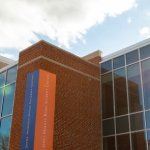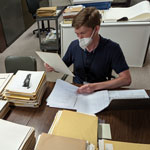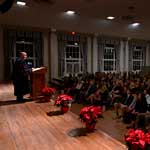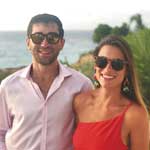

To John Cook ’94, history isn’t just something that happened in the past. It’s something that is constantly evolving and being written every day. Having worked as a journalist for more than 20 years, it’s also how he connects his love of history to his career.
“In many ways, we are the first wave of storytellers and historians,” Cook said.
This sentiment particularly holds true for Cook since founding GeekWire—a “fast-growing, national technology news site with strong roots in the Seattle region and a large audience of loyal, tech-savvy readers around the globe”—less than five years ago. Not only does he get to tell stories about trends and developments at the forefront of the technology industry, but, by creating a digital-first news company, he has complete control over how those stories are told and delivered, too.
Leaving the Seattle Post-Intelligencer, where he worked as a journalist for nearly 10 years, to start GeekWire was a move that many people called risky. Cook tells them it was a venture that would have been far riskier not to pursue.
He was working on the paper’s technology beat when he first noticed a need for change—at least in terms of telling tech stories.
“My audience simply wasn’t interested in a print product anymore. They had shifted all of their news-consumption habits online,” Cook explained. Add that to the flexibility a digital news platform offers that a print product cannot and Cook said the choice became clear.
However, recognizing an opportunity and taking advantage of it are two very different things. But pursuing opportunities a bit outside of the norm is something that Cook has always felt comfortable with, even when he was a student at Gettysburg.
“Entrepreneurs are very different people,” Cook explained. “They don’t have to be like everyone else or have the same experiences everyone else is having. It was something that was a part of me before I came to Gettysburg, but it was definitely shaped and strengthened while I was there.”

Cook interviews Zillow CEO Spencer Rascoff at the 2015 GeekWire Summit, a Seattle event that attracts more than 800 leaders in the tech industry.
Cook played soccer, appearing in 50 matches over four seasons and totaling 11 goals, two assists, and 24 points. He helped his team to the NCAA Division III Tournament twice—the first national appearances in the team’s history. He excelled academically as well. He was inducted into two honors fraternities for his academic success, and graduated magna cum laude with a degree in history.
But the experiences he found to be the most formative were when he got off campus, took advantage of the College's proximity to nearby metropolitan centers and outdoor recreation areas, and got to know people who were vastly different from himself. He studied abroad in Spain at a time when studying abroad wasn’t part of the traditional student experience.
“Being able to take advantage of so many different opportunities and interact with so many different people forced me to be more comfortable with who I was,” Cook said. “It empowered me to be different and creative and operate outside of the confines of what many considered to be the ‘normal’ structure.”

Cook speaks at the GeekWire Awards, an annual event at Seattle's Experience Music Project.
Now, he’s used his self-proclaimed oddball tendencies to not only operate outside of the normal structure of journalism, but to thrive there, too. GeekWire has quickly established itself as a leading authority on the tech industry, and their growth over the past five years has challenged the notion that the news industry is dying.
“We have a new-school business model that employs old-school journalism approaches. We still get fired-up over a new scoop or landing a big interview, but we’ve also figured out how to be a profitable media company in a time when everyone thinks the media is dying and can’t be reinvented,” Cook explained. “We haven’t cracked it, but I’m certainly proud of what we’ve accomplished and where we are going.”
His historical perspective continues to influence his view of forward-thinking journalism, too.
“We’re certainly in a very transformational time of our society, and technology is bringing about a lot of that transformation,” Cook said. “What we are covering matters, not only for today and for where we are heading, but for the historical records that want to understand how we got there. It’s an amazing time to be a journalist and to cover what’s happening next.”


